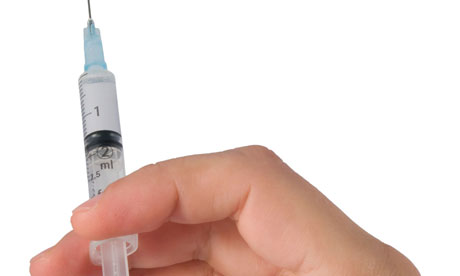
Boys should be considered for routine vaccination against the human papilloma virus (HPV) to stem the rise of some oral cancers, according to a leading scientist working on the disease. The recommendation comes after studies which show that oral cancers in the young are more commonly caused by HPV than by more traditional factors such as tobacco and alcohol.
HPV is normally associated with cervical cancer in women, but evidence has increased in recent years that it can infect tonsils and lead to tumours in the throat and mouth. In the UK, the incidence of oral cancers has risen by 50% in men since 1989 and is rising by 3% a year in women, even though smoking, once thought to be the main cause, is declining. These cancers now kill 1,800 people a year.
"In the US there has been a 200% increase in the incidence of oral cancers that are associated with HPV over the last 20 years," said Maura Gillison of Ohio State University at the annual meeting of the American Association for the Advancement of Science (AAAS) in Washington.
The World Health Organisation reviewed the available data in 2007 and concluded there was sufficient evidence that a strain of the virus, HPV16, was a cause of specific oral cancers.
Gillison said a possible reason for the rise was a change in sexual practices in the past few decades. "What is most strongly linked to oral HPV infection is the number of sexual partners someone has had in their lifetimes, in particular the number of individuals on whom they have performed oral sex," she said. "The higher the number of partners that you've had, the greater the odds that you'd have an oral infection."
She said evidence from sexual behaviour surveys showed that it had become more common to have more sexual partners in the past few decades. "The group of individuals born after 1935 have started to see this increase. Every birth cohort appears to be at greater risk from HPV and oral cancers than the group born before them. These were people who were in their teens and 20s in the 1950s and 1960s, when the sexual revolution happened in the US."
In the UK and US, girls are routinely vaccinated against HPV at around 13 but the vaccine is not licensed for use in boys. In the US, an HPV vaccine is licensed for use in boys to prevent genital warts and anal cancer.
Gillison thinks this policy should change. "When one of my patients asks whether or not they should vaccinate their sons, I say certainly," she said. "The time has come to have a more thorough discussion about the benefits of HPV vaccination for boys."
Gillison has already worked with the pharmaceutical company Merck to find out whether its HPV vaccine, Gardasil, would prevent infection in the mouth and throat. But she said that the full-scale trials needed to get approval from regulators had not yet been carried out. "Those of us in the field are optimistic it will [work] – the vaccines in every anatomical site looked at so far have been shown to be extraordinarily effective, about 90% effective, at preventing infections."
Sara Hiom, director of health information at Cancer Research UK, said: "Cancers in the mouth and throat are on the increase and rates have been rising dramatically in the UK since the mid-1980s, especially in people in their 40s, 50s and 60s. The proportion of these cancers that appear to be related to infection by the human papilloma virus is also increasing."
She added: "But while it's reasonable to assume that HPV vaccination in girls and boys would protect against these cancers, there is as yet no evidence as to whether the current HPV vaccines are effective at preventing them. The trials done to date have looked at cervical cancer or genital warts as endpoints, so we need new studies to show effectiveness against these HPV-related head and neck cancers. Yet most oral cancers diagnosed in people over 50 in the UK are still related to tobacco and alcohol use."

